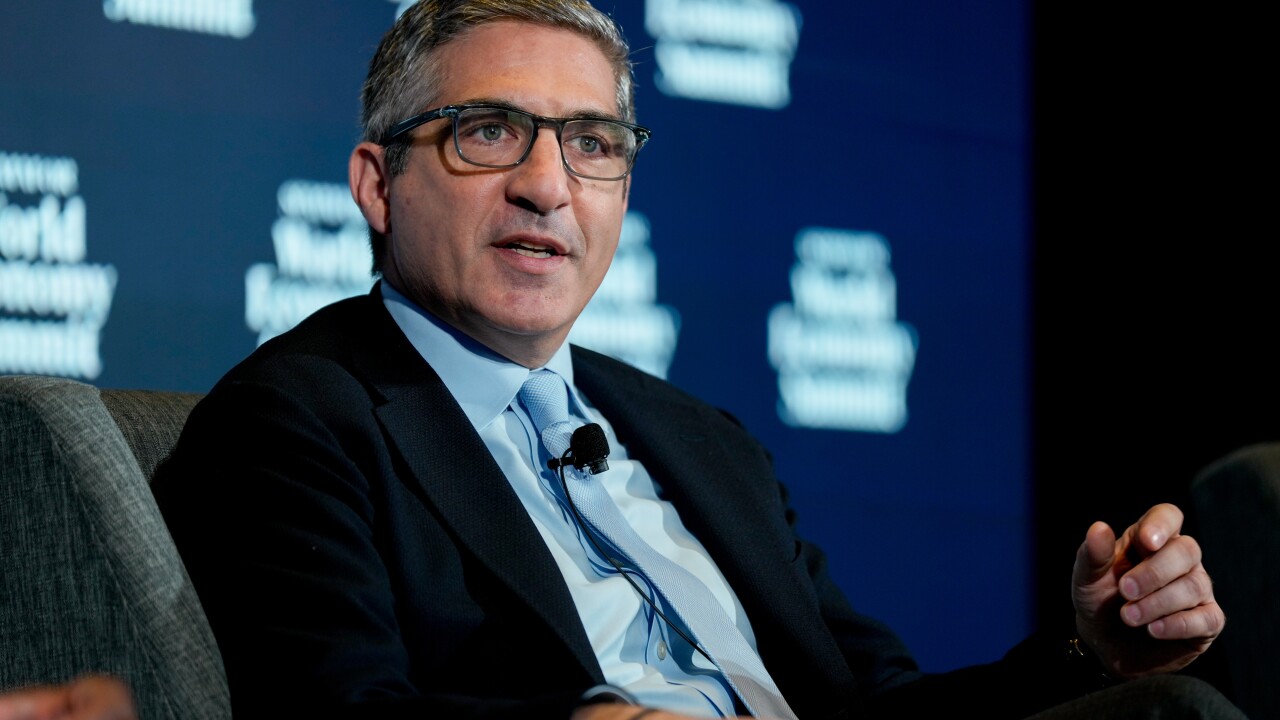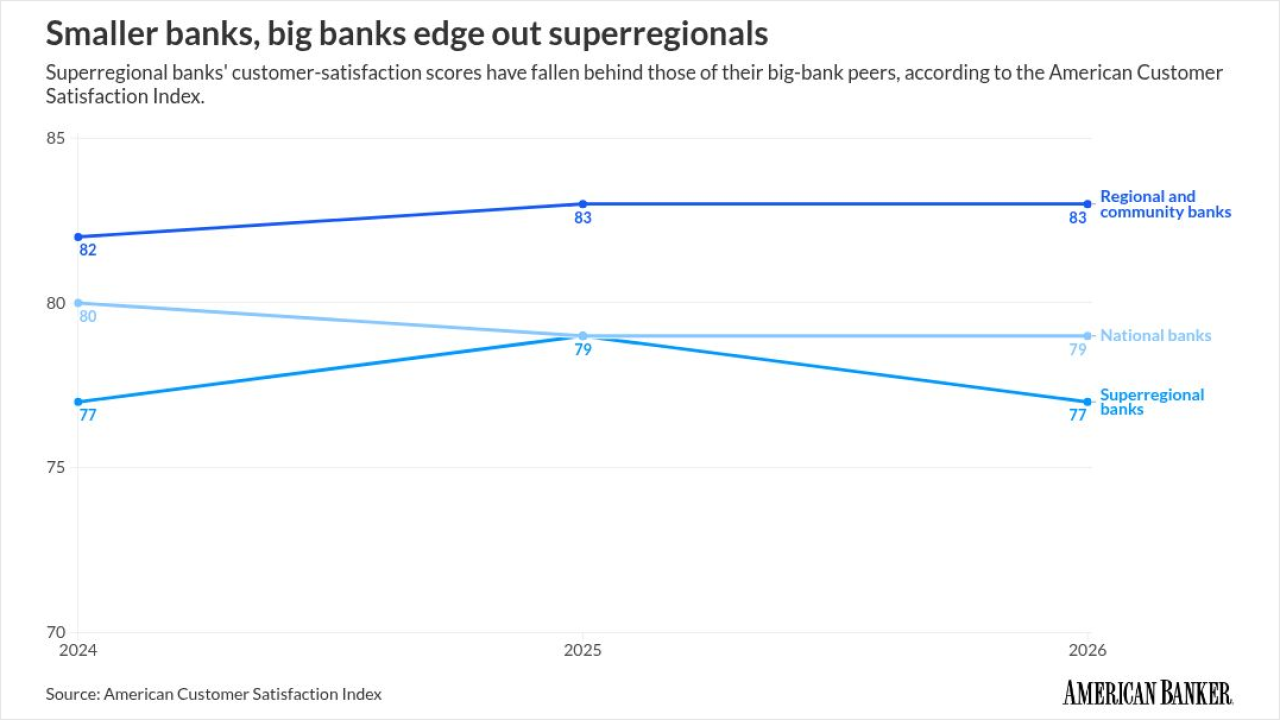-
In a wide-ranging speech on Tuesday, new FHFA Director Mel Watt said he would not weigh in on the housing finance reform debate percolating in Congress, while also detailing what changes he plans to make at the agency, including encouraging more access to credit.
May 13 -
A powerful group of shareholders is amplifying attacks on housing finance reform legislation as they await resolution of a major legal battle, attempting to slow momentum on the bill before it likely passes the Senate Banking Committee.
April 21

Freddie Mac has long struggled to compete with larger rival Fannie Mae because the former's mortgage-backed securities trade at a discount to the latter's. Their new regulator may change that.
As government sponsored enterprises operating in federal conservatorship, Fannie and Freddie are, in theory, equally creditworthy. Yet for a number of esoteric reasons, investors treat Freddie's MBS, which Freddie calls "participation certificates" or PCs, as if they are lower-grade bonds than those guaranteed by Fannie. This has forced the smaller GSE to prop up the liquidity and pricing of its PCs to maintain market share.
For several years the Mortgage Bankers Association has been urging the Federal Housing Finance Agency, the GSEs' regulator and conservator, to address this disparity in pricing. The trade group suggested several options. But the FHFA under acting director Edward DeMarco would not take it on.
The new FHFA director, however, had decided this problem can no longer be ignored. In outlining his agenda last week, Mel Watt said Fannie and Freddie should not only continue building the common securitization platform initiated by DeMarco but also develop a common mortgage-backed security.
"Moving toward a single common security will improve liquidity in the housing finance markets," the former North Carolina congressman said during his first major speech. "It would also reduce costs to the Enterprises, particularly Freddie Mac, since Freddies securities have historically traded at a disadvantage compared to Fannie Mae."
MBA president and chief executive David Stevens welcomes the new approach by the GSE regulator.
"Clearly a single security is the most optimal outcome," Stevens says. "It could make Freddie Mac far more competitive, which helps everyone in the industry."
Eliminating the premium Freddie pays investors will also "lower interest rates," he says.
One reason that premium came to exist is because Fannie MBS used to pay investors earlier each month than Freddie (though this changed in the early 1990s). Another is that the greater volume of Fannie issuance gave its paper greater name recognition in the markets, and hence made it a more liquid, easily-traded instrument.
Also, "Freddie securities tended to prepay faster historically, in part a function of differences between the two agencies' underwriting guidelines but that has narrowed a lot," says Clifford Rossi, a former Freddie executive who is now a Professor-of-the-Practice at the University of Maryland's Robert H. Smith School of Business.
Lenders would like to see more competition between Freddie and Fannie.
"This difference in relative pricing creates an economic incentive for customers to conduct a disproportionate share of their single-family business with Fannie Mae and negatively affects the financial performance of our business," Freddie says in its 2013 annual report. "In certain circumstances, we compensate [lender] customers for the difference in price between our PCs and comparable Fannie Mae securities."
Watt's initial focus will make the current GSE system more efficient, says Urban Institute senior fellow Jim Parrott.
"This move to a single security is intended to address the increasing liquidity challenge by Freddie Mac, which has fallen behind Ginnie Mae in its issuance of agency securities," Parrott wrote in a blog post.
It might take two years to create a common MBS that would allow Fannie and Freddie loans to be pooled together and securitized in the TBA (to be announced) market, Stevens says.
The process would force Freddie to change its PCs so remittances, payouts and other features mirror the structure of Fannie MBS. It would also require changes to pooling and servicing agreements and sellers/ servicers will have to change their systems.
This movement toward a common securitization platform and a common security appears to have the support of parties that are pushing for GSE reform legislation as well as those who want to preserve the current GSE housing finance system.
One interest group that opposes GSE reform legislation welcomed Watt's approach to his new job. Investors Unite executive director Tim Pagliara particularly liked Watt's emphasis on being a conservator of Fannie and Freddie and maintaining a very liquid housing market and a liquid platform for the securitization of mortgages.
Watt stressed the need to "improve on mortgage servicing and improve the liquidity in the market," Pagliara told reporters after Watt's speech. Investors Unite is backed by several hedge funds that own Fannie and Freddie stock.
But Stevens, a former Freddie executive, expects Watt's agenda to complement GSE reform.
Creating a common security would facilitate the transition to the new secondary market envisioned by the supporters of the Senate GSE reform bill, he says. "It would be a real plus for GSE reform."
Rossi agrees. Watt's move on the MBS front "tells me that he's supportive of eventual unwinding of the GSEs," Rossi says. "To go to a single security really is the next step in that evolution."
Marc Hochstein contributed to this story.





